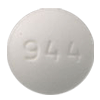Colcine General Information

Colcine is an alkaloid of Colchicum autumnale L., Liliaceae as well as of many other species of the Liliaceae family.
Colcine has been used for many centuries in the treatment of gout and more recently as a general anti-inflammatory agent and in the treatment of Familial Mediterranean Fever.
Colcine has also been used to manage other conditions, including:
amyloidosis
Behcet's disease
dermatitis herpetiformis
Paget's disease
pericarditis
pseudogout
biliary and hepatic cirrhosis
Although Colcine is considered highly effective for treating acute gouty arthritis, it is not effective for all types of pain. Colcine is not considered an analgesic (painkilling) drug.
Colcine Recommendations
Follow the directions for using this medicine provided by your doctor. Take Colcine exactly as directed.
The usual dose to relieve a gout attack is 1 to 1.2 mg (two 0.5 mg or two 0.6 mg tablets). This dose may be followed by one unit of either strength tablet every hour, or two units every two hours.
After the initial dose, it is sometimes sufficient to take 0.5 or 0.6 mg every two or three hours. The drug should be stopped if there is gastrointestinal discomfort or diarrhea.
In patients who have less than one gout attack per year, the usual dose is 0.5 or 0.6 mg per day, three or four days a week. For those who have more than one attack per year, the usual dose is 0.5 or 0.6 mg daily. Severe cases may require two or three 0.5 mg or 0.6 mg tablets daily.
Colcine Precautions
Tell your doctor before taking Colcine, if:
you are allergic to any medicines;
you have any serious medical conditions;
you are pregnant or breast-feeding.
Colcine Ingredients
Active ingredient: colchicine.